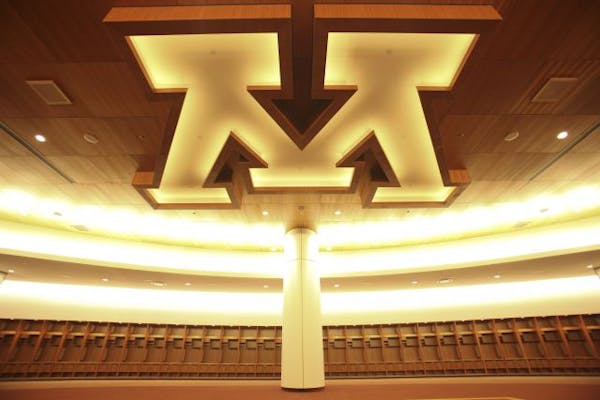Former Gov. Arne Carlson's opinion piece on the University of Minnesota ("A skewed U," April 7) contained inaccurate information, omissions and contradictory criticisms.
His claim that the university's administration "brush[es] aside" the importance of the cost of education is not compatible with the facts. The university's Board of Regents and President Eric Kaler share a commitment to aggressively tackle administrative costs and keep a quality higher education within reach of Minnesota's families.
The university has realized millions of dollars of savings by closing and merging colleges, freezing salaries, leaving faculty slots open, drastically cutting energy and technology costs, decommissioning old buildings, increasing employee-paid health care premiums, eliminating entire administrative offices and vice president positions, and redirecting administrative costs to our core missions of teaching, research and outreach.
In fact, as part of our legislative request this year, we have pledged to freeze Minnesota resident undergraduate tuition for two years and redirect $28 million of administrative costs to our core missions.
Many of the ideas advanced by consulting firms hired to help other universities save money are already being implemented here at the U. We will hire outside help when necessary — as we did this year to examine our administrative structure, as requested by Senate leaders. But we will not substitute a glossy report produced by a consultant for real reform.
Minnesotans might be surprised to learn that for families earning adjusted gross incomes of $75,000 or less, the university's Twin Cities campus has a lower net price (tuition, fees, room and board minus financial aid) than any other four-year college in the state — public or private.
To suggest that the board is not fulfilling its oversight responsibilities or is "kicking the can into the future" is anything but the case. Even before the senators' request, the board and the Kaler administration undertook an aggressive internal review to study the U's costs of delivering its education, research and outreach mission, as well as its administrative costs. As a result, we are better equipped to make strong policy and compensation decisions based on facts.
Carlson's column also rehashes claims from a months-old Wall Street Journal story that the university has already successfully rebutted in a series of public hearings, particularly the assertion that 81 "administrators" earn more than $200,000 a year. Actually, the number is less than half that total, with the others having teaching or academic leadership responsibilities.
The column also suggests that the university can operate outside the marketplace for faculty and staff salaries, and that those salaries drive tuition costs. This argument ignores a reality that was unmentioned: a $140 million reduction in annual state support to the university since 2008.
The belief that the U can cut salaries and benefits while retaining our talented world-class faculty and staff is unrealistic. Just last year, the university's prized researchers brought more than $749 million in grants into Minnesota.
Just like any other business, the university recruits faculty and staff in a market. Despite Carlson's wishes, market salaries are not calibrated to those paid to elected or appointed government officials, who should, arguably, be paid more.
In fact, the salaries of President Kaler's senior team are below the median salaries of the equivalent individuals in the Big Ten and in our university peer group. Kaler's compensation ranks fourth among public institutions in the Big Ten, and there are more than 100 presidents of public and private institutions in America who earn more.
Furthermore, the column's recital of excessive costs at the U ignores both the facts and changes in policy we have implemented, including a strict senior leader compensation policy we developed with President Kaler last year. Sometimes things that sound simple, simply are not.
Making the necessary changes and investments takes time. Some would like the university to move even faster in tackling the challenges we face. But we also are conscious of the necessary balance between moving swiftly and moving thoughtfully in a dynamic, evolving marketplace.
To be fair, Carlson's column does make one valid observation — about our need to improve our central information systems. We agree. That's why we are currently undergoing a total upgrade of our technology system for human resources, purchasing and other services that will be completed by the end of 2014.
We thank Arne Carlson for his longtime love of the university. We hope he will join us in emphasizing the enormous good the University of Minnesota provides for our state, our economy and our families, as well as help us advance our efforts to improve.
In the meantime, the Board of Regents takes its leadership and governance role very seriously and remains fully committed to work closely with President Kaler to make an excellent education accessible to qualified Minnesota students and conduct the research and outreach that will benefit the state for decades to come.
--------------------------
Linda Cohen is chair of the University of Minnesota Board of Regents.
The courage to follow the evidence on transgender care

Republicans wanted a crackdown on Israel's critics. Columbia obliged.


